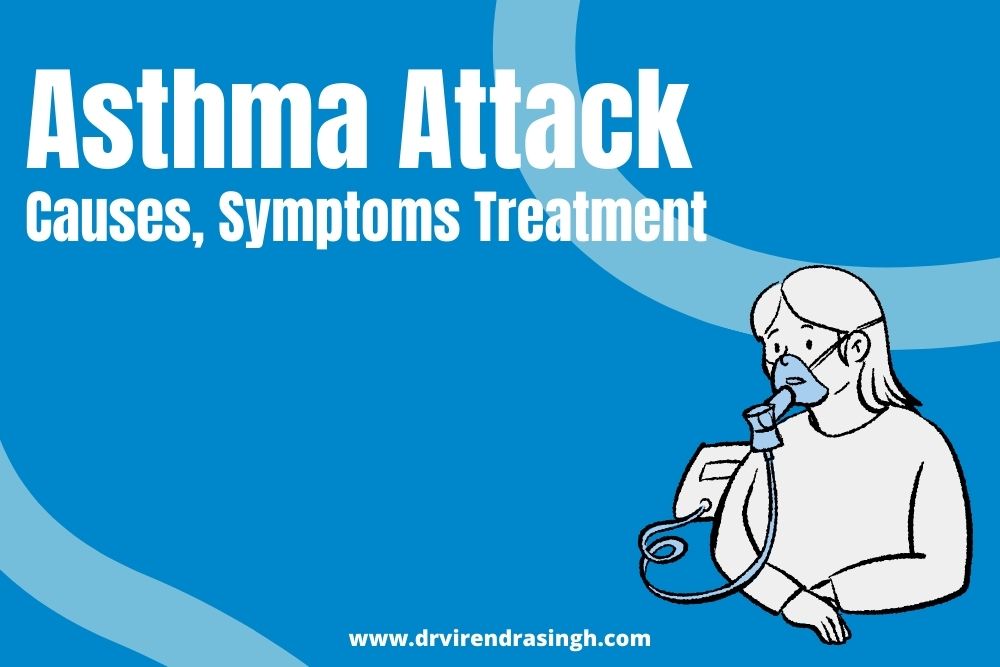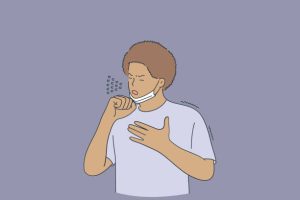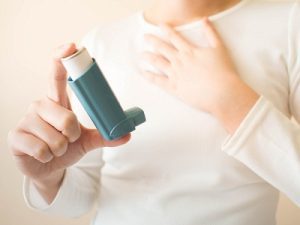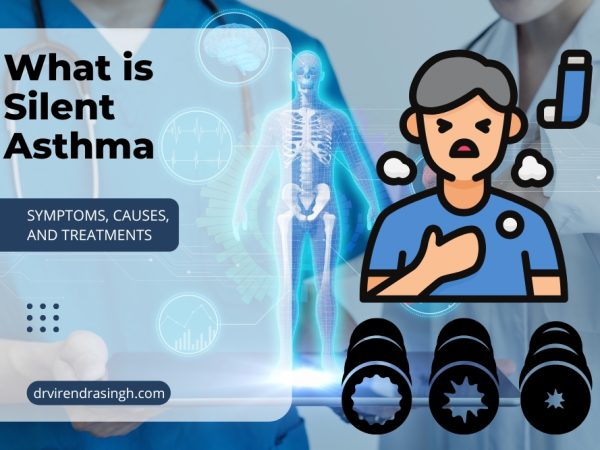
An asthma attack is defined as a sudden worsening of asthma symptoms caused by tightness of the muscles surrounding your airways. A bronchospasm is a tightness of the airways. During an asthma episode, the lining of the airways swells or becomes irritated, and thicker mucus is generated. You may cough, wheeze, and have difficulty breathing during an attack. With immediate home therapy, minor asthma symptoms improve.
What Is An Asthma Attack?

A severe asthma attack that does not respond to home therapy can quickly escalate into a life-threatening emergency. The key to preventing an asthma attack is recognizing and treating an asthma flare-up as soon as possible. Follow the treatment plan you developed in advance with your doctor.
Causes Of Asthma Attack
When you are exposed to specific triggers, your airways (bronchial tubes)become inflamed and swollen due to an excessively sensitive immune system. The cause of asthma differs from individual to person. The following are some of the
Most prevalent asthma attack triggers:
- Pollen, pets, mold, and dust mites are all potential allergens.
- Tobacco smoke.
- Upper respiratory infections.
- Gastroesophageal reflux disease(GERD)
- Inhaling cold, dry air.
- Stress.
Many people’s asthma symptoms worsen when they have a respiratory illness, such as the common cold. Some people experience asthma flare-ups as a result of anything in their workplace. Sometimes there is no obvious cause for an asthma attack.
Symptoms Of Asthma Attack
Signs & symptoms include:
- Extreme shortness of breath, stiffness or pain in the chest, and coughing or wheezing.
- If you utilize a peak flow meter, you will get low peak expiratory flow(PEF)numbers.
- High or low heart rate.
- Low blood pressure.
- Bluish tint to the lips.
- Confusion or agitation.
- Strong wheezing on inhalation and exhalation.
- Chest tightness or pressure.
- Pale, sweaty face.
- Feelings of anxiety or panic.
Treatment Of Asthma Attack

In general, it is critical to remain calm and take the drugs suggested by your allergist. Your doctor’s most recent asthma action plan should always be available to help guide therapy when symptoms arise. Asthma attacks are treat with quick-relief drugs, which are often use by inhaler. These include beta2-agonists with a short half-life and/or anticholinergic bronchodilators(which relax airway muscles). Systemic corticosteroids(which lower airway inflammation) may be required if symptoms persist or worsen. Get medical attention right away if your coughing or shortness of breath persists.
Dr. Virendra Singh is India’s foremost authority on the chest. His passion is caring for and treating tough asthmatic patients. during-his 40-year career, he has treated nearly one million patients, including three lacs of asthmatic and COPD patients. Other areas of competence include interstitial lung disease(ILD) and sleep apnea. He is currently the director of Asthma Bhawan and the president of RHL, a 250-bed multi-specialty hospital in Jaipur. Seeing the dangers of tobacco, he initiated a crusade against it, and his organization, the Indian Asthma Care Society, fought a battle to obtain a ban on Gutkha and the smoking law COTPA act passed.

